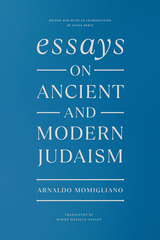13 start with A start with A
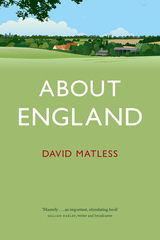
Brexit thrust long fraught debates about “Englishness” and the idea of England into the spotlight. About England explores imaginings of English identity since the 1960s in politics, geography, art, architecture, film, and music. David Matless reveals how the national is entangled with the local, the regional, the European, the international, the imperial, the post-imperial, and the global. He also addresses physical landscapes, from the village and country house to urban, suburban, and industrial spaces, and he reflects on the nature of English modernity. In short, About England uncovers the genealogy of recent cultural and political debates in England, showing how many of today’s social anxieties developed throughout the last half-century.

Over the last twenty years, a concerted effort has been made to uncover the history of the Holodomor, the Great Famine of 1932–1933 in Ukraine. Now, with the archives opened and the essential story told, it becomes possible to explore in detail what happened after the Holodomor and to examine its impact on Ukraine and its people.
In 2008 the Ukrainian Research Institute at Harvard University hosted an international conference entitled “The Great Famine in Ukraine: The Holodomor and Its Consequences, 1933 to the Present.” The papers, most of which are contained in this volume, concern a wide range of topics, such as the immediate aftermath of the Holodomor and its subsequent effect on Ukraine’s people and communities; World War II, with its wartime and postwar famines; and the impact of the Holodomor on subsequent generations of Ukrainians and present-day Ukrainian culture. Through the efforts of the historians, archivists, and demographers represented here, a fuller history of the Holodomor continues to emerge.
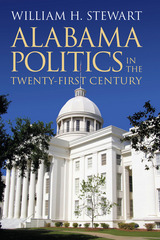
Why does Alabama rank so low on many of the indicators of quality of life? Why did some of the most dramatic developments in the civil rights revolution of the 1960s take place in Alabama? Why is it that a few interest groups seem to have the most political power in Alabama? William H. Stewart’s Alabama Politics in the Twenty-First Century explores these questions and more, illuminating many of the often misunderstood details of contemporary Alabama politics in this cohesive and comprehensive publication.
The Alabama state government, especially as a specimen of Deep South politics, is a topic of frequent discussion by its general public—second only to college football. However, there remains a surprising lack of literature focusing on the workings of the state’s bureaucracy in an extensive and systematic way. Bearing in mind the Yellowhammer State’s long and rich political history, Stewart concentrates on Alabama’s statecraft from the first decade of the twenty-first century through the November 2010 elections and considers what the widespread Republican victories mean for their constituents. He also studies several different themes prominent during the 2010 elections, including the growing number and influence of special interest groups, the respective polarization of whites and blacks into the Republican and Democratic parties, and the increasingly unwieldy state constitution.
This fascinating and revealing text provides a wealth of information about an extremely complex state government. Featuring detailed descriptions of important concepts and events presented in a thorough and intelligible manner, Alabama Politics in the Twenty-First Century is perfect for scholars, students, everyday Alabamians, or anyone who wants the inside scoop on the subtle inner workings of the Cotton State’s politics.

Alexandria Goes to War chronicles the lives of men and women whose service made the city unique in the exceptional quality and variety of talent it provided to the Confederate cause. Some of these sixteen individuals are familiar to Civil War readers as their contributions to the southern war effort brought them special notoriety: General Lee, of course, and his son Custis; Samuel Cooper, the senior general in the Confederate army; and Commodore French Forrest. For others less well known—attorneys George Brent and Douglas Forrest, engineer Wilson Presstman, politician Daniel Funsten, student Randolph Fairfax, and immigrant Patrick O’Gorman—the Civil War provided an opportunity to exercise their full talents.
Alexandrians Orton Williams and Frank Stringfellow became celebrated for their colorful adventures. Montgomery Corse’s life paralleled major developments in mid-nineteenth-century America. Alexander Hunter went on to become a noted author of Civil War remembrances. Kundahl also examines the fate of Anne Frobel, a Southern sympathizer who spent the entire war behind Union lines. The survey concludes by reflecting on the role of Edgar Warfield, who well represents those forlorn survivors of the Lost Cause.
Taken as a whole, these profiles constitute a microcosm of the South’s desperate gamble to secede from the Union and form its own nation. The accounts of their service represent not only a single community’s contribution to the redefining contest in American life but also highlight the diverse endeavors that constituted the southern war effort. Their stories reflect the sacrifices made throughout the region for a cause that became hopeless.
George G. Kundahl served as executive director of the U.S. Securities and Exchange Commission and as a principal deputy assistant secretary at the Department of Defense. After thirty-four years of commissioned service in the U.S. Army, he is now major general, US Army Retired. A graduate of Davidson College, he received an M.A. and Ph.D. in political science from the University of Alabama. Kundahl is the author of Confederate Engineer: Training and Campaigning with John Morris Wampler. He and his wife divide time between their home in Alexandria and the French Riviera.
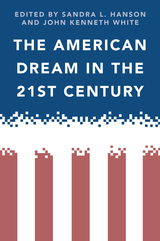
The American Dream has long been a dominant theme in U.S. culture, one with enduring significance, but these are difficult times for dreamers. The editors of and contributors to The American Dream in the 21st Century examine the American Dream historically, socially, and economically and consider its intersection with politics, religion, race, gender, and generation.
The conclusions presented in this short, readable volume provide both optimism for the faith that most Americans have in the possibility of achieving the American Dream and a realistic assessment of the cracks in the dream. The last presidential election offered hope, but the experts here warn about the need for better programs and policies that could make the dream a reality for a larger number of Americans.
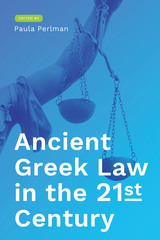
The ancient Greeks invented written law. Yet, in contrast to later societies in which law became a professional discipline, the Greeks treated laws as components of social and political history, reflecting the daily realities of managing society. To understand Greek law, then, requires looking into extant legal, forensic, and historical texts for evidence of the law in action. From such study has arisen the field of ancient Greek law as a scholarly discipline within classical studies, a field that has come into its own since the 1970s.
This edited volume charts new directions for the study of Greek law in the twenty-first century through contributions from eleven leading scholars. The essays in the book’s first section reassess some of the central debates in the field by looking at questions about the role of law in society, the notion of “contracts,” feuding and revenge in the court system, and legal protections for slaves engaged in commerce. The second section breaks new ground by redefining substantive areas of law such as administrative law and sacred law, as well as by examining sources such as Hellenistic inscriptions that have been comparatively neglected in recent scholarship. The third section evaluates the potential of methodological approaches to the study of Greek law, including comparative studies with other cultures and with modern legal theory. The volume ends with an essay that explores pedagogy and the relevance of teaching Greek law in the twenty-first century.


Who are the innovators who have built a contraption that can turn the energy of a simple wave off the Oregon coast into burnt toast in Idaho? Who are the scientists in Massachusetts who have invented a battery that now runs your hand drill and will soon run your car? Readers will meet them all in this book. They will learn how the new energy economy will grow, the research that is required, and the legislation that must be passed to make the vision a reality.
This is a thoughtful, optimistic book, based on sound facts. No one before has tied together the concepts of economic growth and greenhouse gas reductions with such concrete examples. No one has previously told the real stories of the people who are right now on the front lines of the energy revolution. The co-authors, one a U.S. Congressman who is the primary sponsor of the New Apollo Energy Act, and the other the founder of the Apollo Alliance, have joined their experience, expertise, and passion for a clean energy future to lay out the path to stop global warming and gain energy independence.
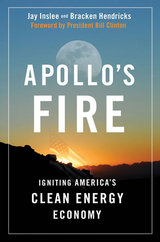
Who are the innovators who have built a contraption that can turn the energy of a simple wave off the Oregon coast into burnt toast in Idaho? Who are the scientists in Massachusetts who have invented a battery that now runs your hand drill and will soon run your car? Readers will meet them all in this book. They will learn how the new energy economy will grow, the research that is required, and the legislation that must be passed to make the vision a reality.
This is a thoughtful, optimistic book, based on sound facts. No one before has tied together the concepts of economic growth and greenhouse gas reductions with such concrete examples. No one has previously told the real stories of the people who are right now on the front lines of the energy revolution. The co-authors, one a U.S. Congressman who is the primary sponsor of the New Apollo Energy Act, and the other the founder of the Apollo Alliance, have joined their experience, expertise, and passion for a clean energy future to lay out the path to stop global warming and gain energy independence.

Taking up works from Andy Warhol, Kevin Young, Don DeLillo, and Hari Kunzru, Archival Fictions considers how these writers have constructed a speculative history of media technology through formal experimentation. Although media technologies have determined the extent of what can be written, recorded, and remembered in the immediate aftermath of print's hegemony, Paul Benzon argues that literary form provides a vital means for critical engagement with the larger contours of media history. Drawing on approaches from media poetics, film studies, and the digital humanities, this interdisciplinary study demonstrates how authors who engage technology through form continue to imagine new roles for print literature across the late twentieth and early twenty-first centuries.
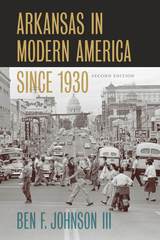
Particularly impressive for the breadth of its scope, Arkansas in Modern America since 1930 offers an overview of the factors that moved Arkansas from a primarily rural society to one more in step with the modern economy and perspectives of the nation as a whole. The narrative covers the roles of Daisy Bates, Sam Walton, Don Tyson, Bill Clinton, and other influential figures in the state’s history to reveal a state shaped by global as much as by local forces. The second edition of this important book will continue to set the standard for analysis and interpretation of Arkansas’s place in the contemporary world.
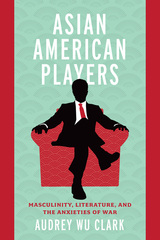
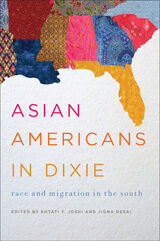
READERS
Browse our collection.
PUBLISHERS
See BiblioVault's publisher services.
STUDENT SERVICES
Files for college accessibility offices.
UChicago Accessibility Resources
home | accessibility | search | about | contact us
BiblioVault ® 2001 - 2024
The University of Chicago Press


